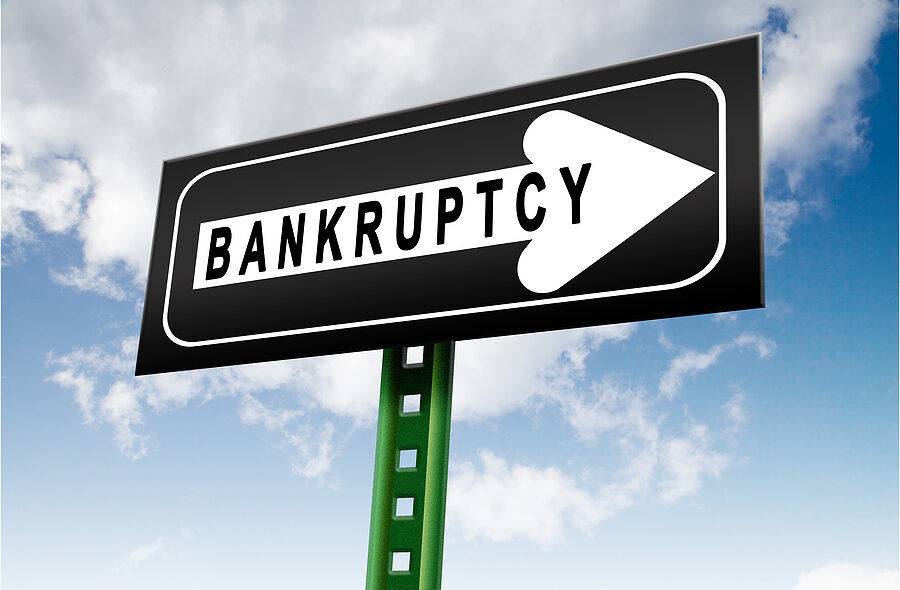The COVID-19 pandemic hit the nation’s economy hard, forcing many businessowners to make some tough decisions regarding their business’s future. Government stimulus efforts, as well as lower interest rates, kept many businesses afloat, which brought Chapter 11 bankruptcy filings to an all-time low.
At the same time, Subchapter V of the 2019 Small Business Reorganization Act (SRBA), opened the doors and made filing for Chapter 11 bankruptcy simpler and more streamlined for attorneys and business owners. The CARES Act temporarily also tripled the debt limit for eligible small businesses to file for bankruptcy. However, now that those measures are coming to an end, Congress has been asked to pass legislation to extend the measures, keeping the elevated limit of $7.5 million. These measures failed last week, and the limit expires as of Sunday.
What this expiration means is small businesses can have no more than $2.7 million in qualifying debt to file under Subchapter V of Chapter 11. This means for most small businesses who are in between debt limits, they will not be able to pursue Chapter 11 bankruptcy.
According to the American Bankruptcy Institute (ABI), between 2008 and 2017, only 25 percent of businesses with assets or liabilities less than $10 million were able to receive confirmation of their Chapter 11 reorganization plans. Businesses that had more than $10 million in assets had a confirmation rate of 40 percent.
Traditionally, small businesses have found Chapter 11 bankruptcy cases to be lengthy and costly, requiring them to jump through hoops and deal with extensive reporting requirements only to not receive the relief they desperately need.
Alternatively, a Subchapter V Chapter 11 bankruptcy expedites the process for small businesses puts a 90-day deadline on filers to submit their reorganization plan who often receive a confirmation of their reorganization plan in under six months. Bankruptcy trustee fees are lower under this subchapter, and filers are given more time to pay their administrative and legal fees.
Prior to COVID relief efforts being created, ABI had previously recommended that the SBRA include a $10 million debt limit. Despite their recommendation, the SBRA went into effect in February 2020 with a debt limit of only $2.7 million. That limit only stayed in effect for one month before the CARES Act passed in March 2020, raising the debt limit to $7.5 million.
Subchapter V has worked to help small businesses reorganize their debts and keep their doors open, according to recent figures from ABI and Epiq Bankruptcy. Approximately 30 percent (30%) of the nearly 10,000 commercial Chapter 11 bankruptcy filings since February 2020 have been under this subchapter. Of small business bankruptcy filings, 75 percent (75%) have been under Subchapter V.
Certain retroactivity provisions in the SBRA allow small businesses to file for Chapter 11 and later switch to Subchapter V. However, bankruptcy attorneys fear that the lapse in the debt limit will end up preventing many businesses from filing.
Moving to a permanent $7.5 million debt limit would be preferable, say many bankruptcy attorneys. This debt limit would be subject to annual increases due to inflation. Other critics of these measures say that the debt limit should be in line with the Family Farmer Relief Act, which has their debt limit at $10 million for Chapter 12 bankruptcy filings. Advocates call for consumers to contact their congressional representatives to ask for the limit to be raised to this higher figure.
How this all will play out will heavily influence not only commercial restructuring, but will also play a part in determining when and if a wave of insolvency will hit.
Please click here to read more.
If you have questions on this topic or are in financial crisis and considering filing for bankruptcy, contact an experienced Miami bankruptcy attorney who can advise you of all of your options. As an experienced CPA as well as a proven bankruptcy lawyer, Timothy Kingcade knows how to help clients take full advantage of the bankruptcy laws to protect their assets and get successful results. Since 1996 Kingcade Garcia McMaken has been helping people from all walks of life build a better tomorrow. Our attorneys’ help thousands of people every year take advantage of their rights under bankruptcy protection to restart, rebuild and recover. The day you hire our firm, we will contact your creditors to stop the harassment. You can also find useful consumer information on the Kingcade Garcia McMaken website at www.miamibankruptcy.com.

